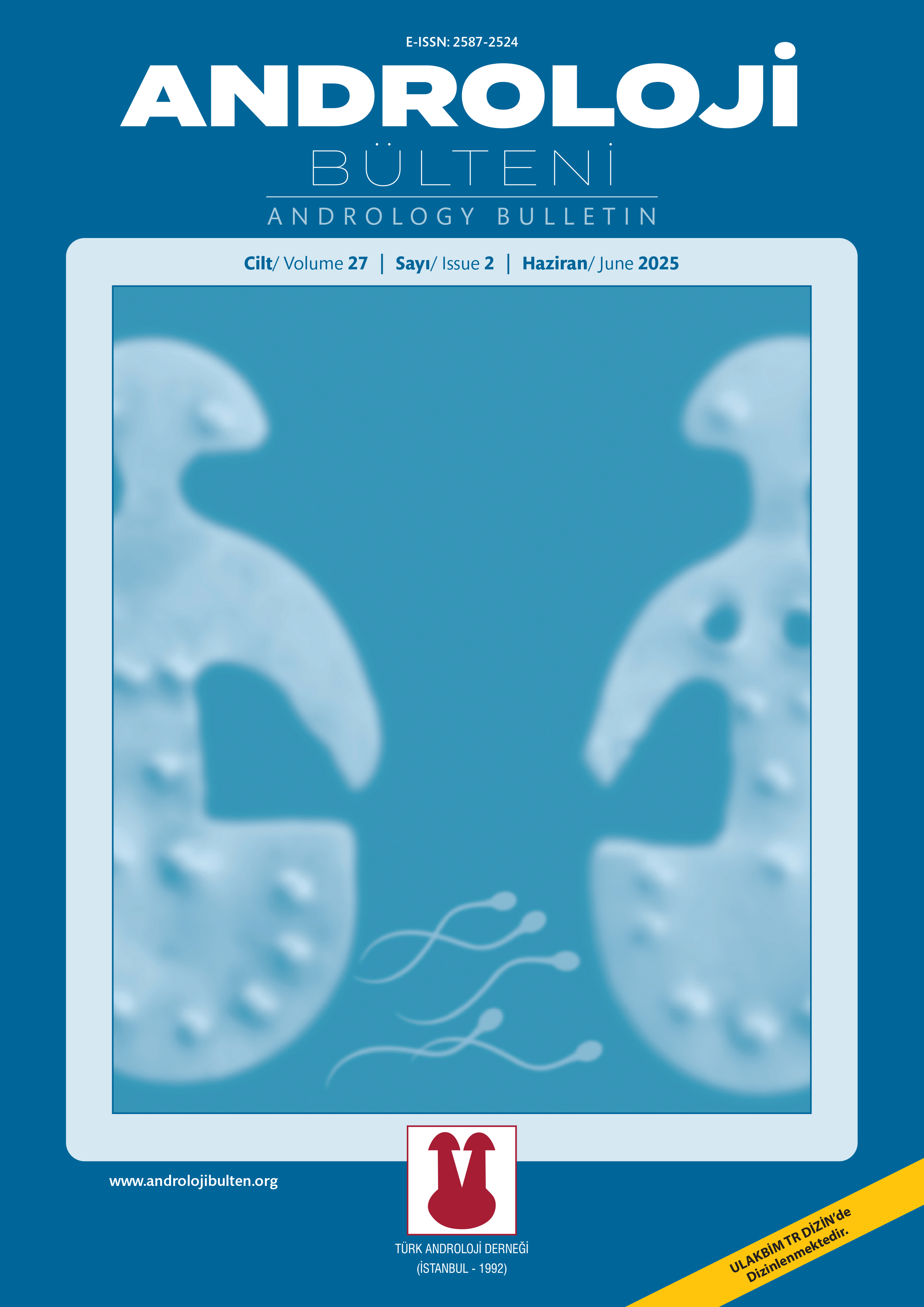
Bu derginin içeriği Creative Commons Atıf-GayriTicari 4.0 Uluslararası Lisansı kapsamında lisanslanmıştır.
Sağlık profesyonellerinin çocuklarına verdikleri cinsel eğitimle ilgili yaklaşımlarının belirlenmesi: Bir kamu hastanesi örneği
Yasemin Şanlı1, Özlem Şahan2, Ergül Aslan31Karamanoğlu Mehmetbey Üniversitesi, Sağlık Bilimleri Fakültesi, Ebelik Bölümü, Karaman, Türkiye2Antalya Bilim Üniversitesi Sağlık Bilimleri Fakültesi Ebelik Bölümü, Antalya, Türkiye
3İstanbul Üniversitesi - Cerrahpaşa Florence Nightingale Hemşirelik Fakültesi, Kadın Sağlığı ve Hastalıkları Hemşireliği Anabilim Dalı, İstanbul, Türkiye
AMAÇ: Bu çalışma dört yaş ve üzeri çocuğu olan sağlık profesyonellerinin çocuklarına verdikleri cinsel eğitimle ilgili yaklaşımlarını ve bu konudaki tutumlarını belirlemek amacıyla yapılmıştır.
GEREÇ ve YÖNTEMLER: Araştırma, tanımlayıcı kesitsel tipte yapılmıştır. Araştırmanın örneklemini İç Anadolu Bölgesinde bulunan bir kamu hastanesinde görev yapan, dört yaş ve üzeri çocuğu olan ve çalışmaya katılmaya gönüllü 203 sağlık profesyoneli oluşturmuştur. Veriler, Sosyodemografik Soru Formu ve Cinsel Eğitim Ebeveyn Anketi aracılığı ile elde edilmiştir. Veriler araştırmacı tarafından bireysel olarak sağlık personeli ile çalışma ortamında uygun zaman ayrılarak yüz yüze görüşme yöntemi ile toplanmıştır. Verilerin analizi bir paket programda yapılmıştır.
BULGULAR: Araştırmaya katılan 203 sağlık profesyonelinden beşi hekim, 153’ü hemşire, 45’i sağlık teknikeri, sağlık memuru ve psikolog vb. sağlık personelidir. Katılımcıların %96,1’i çocuklar için cinsel eğitimin gerekli olduğunu ve bunların %60,8’i yedi yaş ve üzerinde verilmesi gerektiğini bildirmiştir. Katılımcıların %77,8’i çocuğuyla cinsellikle ilgili konularda konuştuğunu ve bu kapsamda %56,7’si vücuttaki cinsiyete özgü farklılıkları açıkladığını ifade etmiştir. Katılımcıların %76,4’ü cinsel gelişim ve eğitimin anne karnında başlayıp yaşam boyu devam ettiğini, %91,1’i çocuğa ilk cinsel bilgilerin anne-baba tarafından verilmesi gerektiğini ve %57,6’sının cinsel eğitimin okulda verilmesi gerektiğini belirtmiştir.
SONUÇ: Çalışmada sağlık profesyoneli ebeveynlerin büyük çoğunluğunun çocuklar için cinsel eğitimin gerekli olduğu düşüncesinde olup, cinsellikle ilgili çocuklarıyla konuştuklarını belirtmiştir. Katılımcıların yarısının genellikle çocuklarının cinsellikle ilgili davranışlarının çoğunu ‘engelleme’ davranışında bulunacaklarını ifade ettikleri görülmüştür.
Determining the approaches of health professionals on sex education to their children: A public hospital example
Yasemin Şanlı1, Özlem Şahan2, Ergül Aslan31Karamanoğlu Mehmetbey University, Faculty Of Health Sciences, Department Of Midwifery, Karaman2Antalya Bilim University Faculty Of Health Sciences Department Of Midwifery, Antalya
3Istanbul University-cerrahpasa Florence Nightingale Faculty Of Nursing, Department Of Women
OBJECTIVE: This study was carried out to determine the approaches and attitudes of health professionals who have children aged 4 and over, regarding the sexual education they give to their children.
MATRERIAL and METHODS: The research was conducted in descriptive cross-sectional type. The sample of the study consisted of 203 health professionals who work in a public hospital in the Central Anatolia Region, have children aged 4 and above and volunteer to participate in the study. The data were obtained through the Socio-demographic Questionnaire and the Sex Education Parent Questionnaire. The data were collected by the researcher individually, with the health personnel in the working environment, and by face-to-face interview method. Data analysis was done in a package program.
RESULTS: Of the 203 health professionals who participated in the research, 5 were physicians, 153 were nurses, 45 were health technicians, health officers and psychologists, etc. are health personnel. 96.1% of the participants stated that sexual education is necessary for children and 60.8% of them stated that it should be given at the age of 7 and above. 77.8% of the participants stated that they talked to their children about sexual matters, and in this context, 56.7% explained the genderspecific differences in the body. 76.4% of the participants stated that sexual development and education starts in the womb and continues throughout life, 91.1% stated that the first sexual information should be given to the child by the parents, and 57.6% stated that sexual education should be given at school.
CONCLUSION: In the study, health professionals stated that the majority of parents thought that sexual education is necessary for their children and they talked to their children about sexuality. It was observed that half of the participants stated that they would generally engage in ‘blocking’ most of their children’s sexual behaviors.
Makale Dili: Türkçe
(781 kere indirildi)













